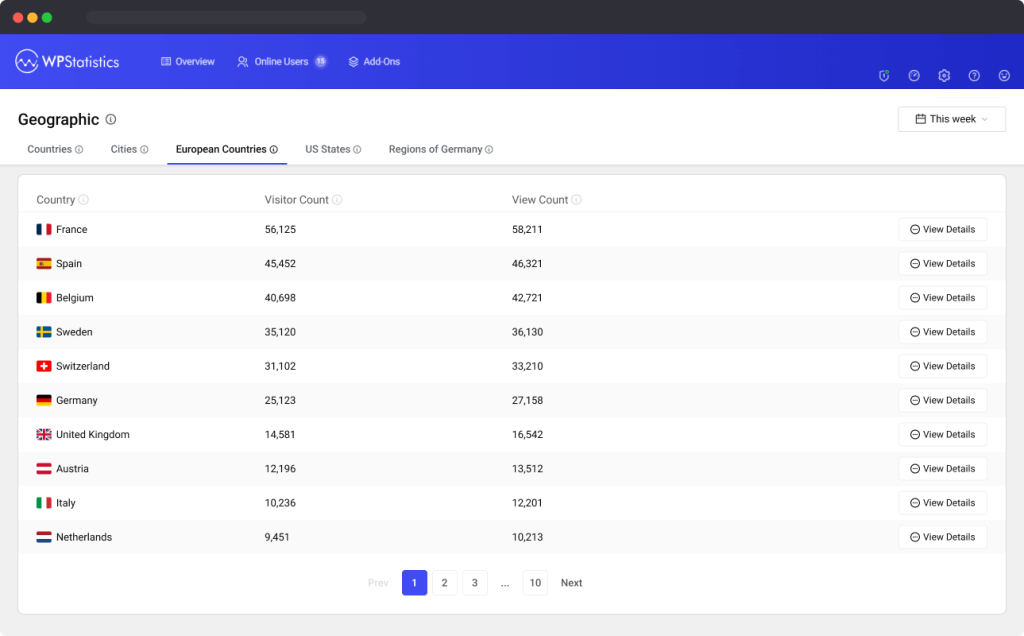Take your business to next level
Become part of our growing family of +600,000 users and get the tools you need to make smart choices for your website. Simple, powerful insights are just a click away.

The “European Countries” report is a part of the Geographic reports. This report provides insights into the visitor statistics based on their country of origin within Europe. It is a crucial tool for understanding the geographical distribution of your European audience.
To access the “European Countries” report:
The “European Countries” report is divided into several key components:
We detect cities, regions, and countries through the user’s IP and use the GeoIP library.
For more accurate location reports, make sure your GeoIP database is updated. You can update the database through:
The European Countries report was introduced in version 14.8. Additionally, we made an under-the-hood change in version 14.7 to separate countries by continent. Therefore, if you notice discrepancies between the numbers in the European Countries report and the Countries report, it is because we did not track continents before version 14.7.
Understanding the geographical distribution of your European audience can help you tailor your content and marketing strategies to better suit the preferences and behaviors of visitors from different regions. For instance:
Become part of our growing family of +600,000 users and get the tools you need to make smart choices for your website. Simple, powerful insights are just a click away.